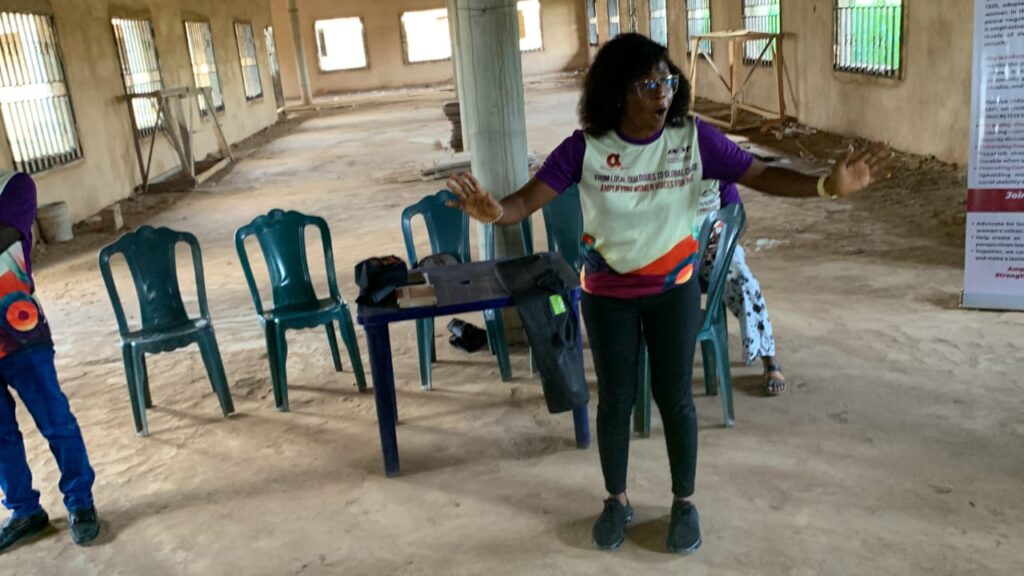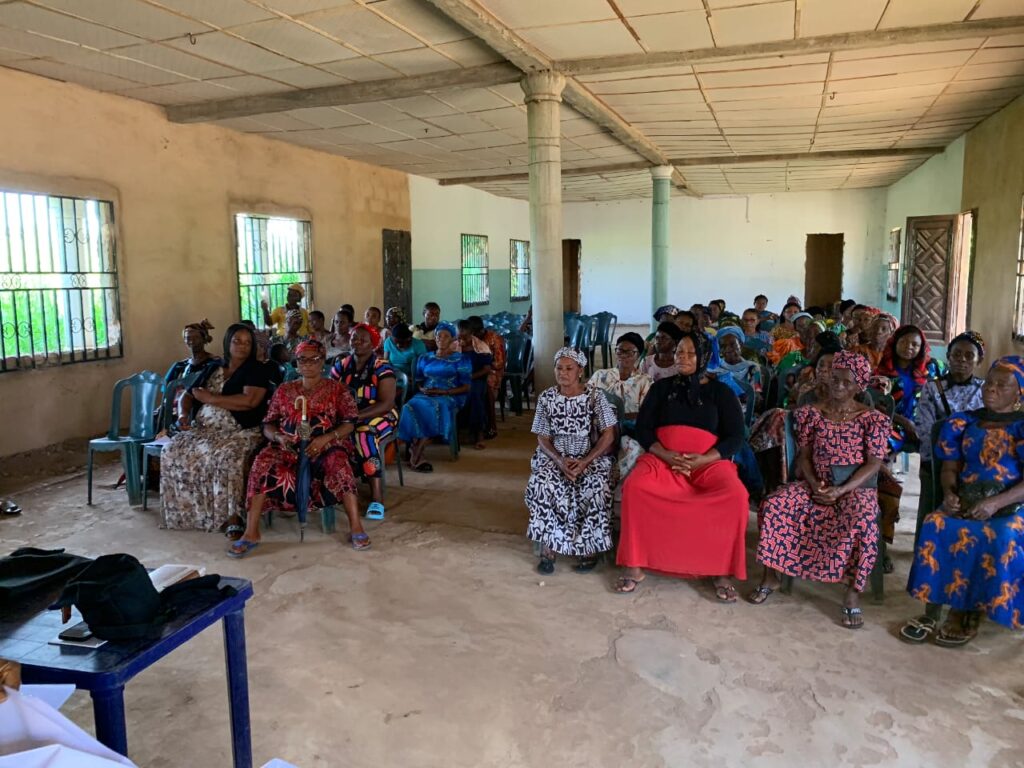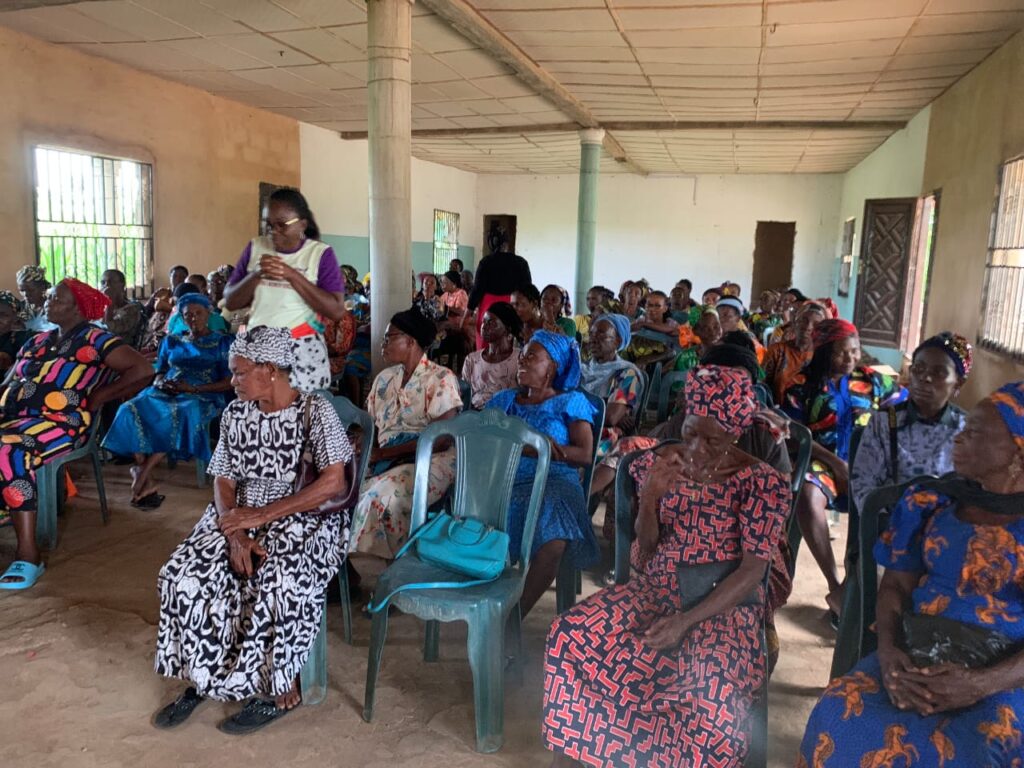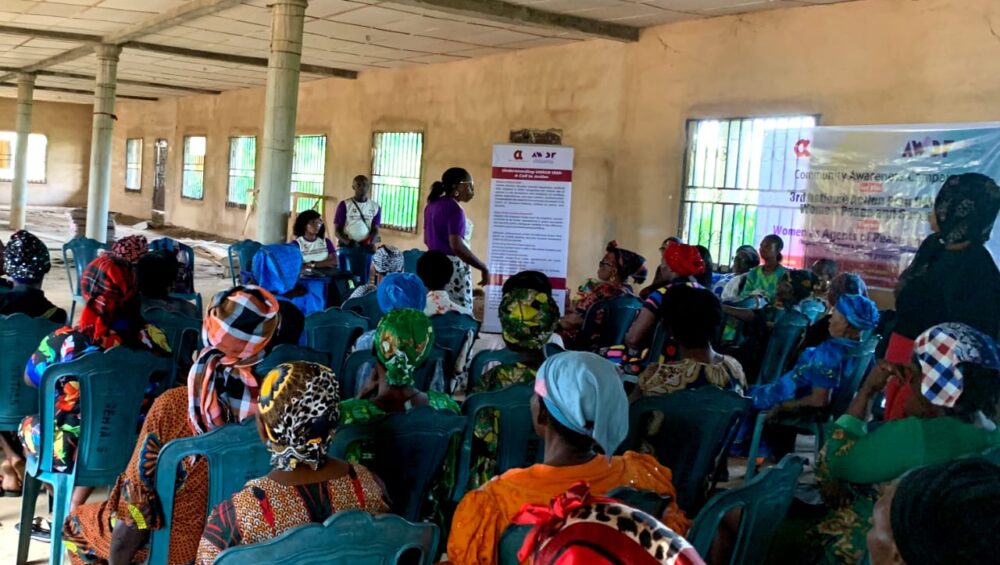Harriet Ijeomah
Owerri, Imo State – In a landmark effort to empower rural women as agents of peace and conflict resolution, Alliances for Africa (AfA) recently convened a community awareness campaign for over 130 women from seven villages in Owalla autonomous community, Owerri North Local Government Area of Imo State. The outreach, held as part of its advocacy on the 3rd National Action Plan (NAP) on United Nations Security Council Resolution (UNSCR) 1325, focused on promoting women’s participation in peace and security dialogues.
The participating villages included Obashinashinemena, Umuogwuo, Eshirilam, Dikenarougo, Arugo, Obulonaezuoke, and Umuosuagwu. The event aimed to demystify the provisions of the National Action Plan and train women as stakeholders in conflict prevention, peacebuilding, and decision-making processes at the local level.
Background: Women, Peace and Security in Nigeria
The Project Officer with AFA, Ifeoma Obinwa, speaks massively on the Adoption in 2000, while stressing on the historical grounds of UNSCR 1325. She stresses that it acknowledges the disproportionate impact of armed conflict on women and girls and stresses the importance of women’s inclusion in peace negotiations, post-conflict reconstruction, and conflict prevention. Nigeria became a signatory in 2013, launching its first National Action Plan (NAP) to localize the resolution’s five key pillars: Prevention, Protection, Participation, Relief and Recovery, and Prosecution.
Now in its third cycle (2023–2027), the National Action Plan emphasizes integrating women at all levels of peace and security decision-making, especially in communities historically affected by structural gender exclusion.
Despite the global and national policy strides, women remain underrepresented in security dialogues, traditional cabinets, community development planning, and land governance in many rural Nigerian communities.
“According to UN Women, as of 2024, less than 20% of peace negotiation delegations globally have female representation, a reality that trickles down to grassroots governance structures in places like Owalla”.


Voices from the Field: “We are the silent builders”
During interactive sessions, many women shared deep-seated grievances regarding systemic marginalization:
“We sweep the villages, care for families, and support community development. But when it’s time to share land or development levies, we’re ignored. They say we’re strangers,” said Mrs. Osuji Patience, a participant from Umuogwuo.
“They call us when the family is in crisis, to care for the sick or the elderly. But when our fathers’ property is shared, they exclude us. It’s like we don’t exist,” added Ijeoma, another participant.
Training Focus: Women as Peacebuilders and Stakeholders
At the Workshop Juliet Okeiyi, a community mobilizer, introduced the women to the five pillars of the NAP framework. She emphasized that women’s participation in peace and security is not symbolic, it is strategic.
“The goal is for women to be actively involved in preventing violence, mediating conflicts, and occupying the decision-making seats that affect them. This training helps communities understand that peace isn’t sustainable without women,” Okeiyi explained.
She also highlighted that AfA is collaborating with stakeholders to domesticate the National Action Plan at the state level, encouraging the Imo State government to develop a State Action Plan (SAP) that reflects the realities of local women.

Community Leadership Responds
Hon. Rosemary Obilor, President-General of Owalla community and a lone female in the local traditional council, praised the campaign as “eye-opening,” noting that the training revealed many cultural practices that invisibly harm and marginalize women.
“Women are not just caregivers or followers; we are decision-makers and peace agents. The women in this room will return to their villages and carry this message into their August meetings, churches, and homes,” she said.
She decried the absence of women in community land sales, conflict mediation, and development levy sharing, despite their substantial unpaid contributions to social development.
“When lands are sold in the community, quotas go to the Eze, President-General, Youths, Oha Cabinet, and even security units but women are excluded. When we ask why, they say we are strangers. Yet these ‘strangers’ raise the future of the community.”
Alliances for Africa (AfA) is an international African feminist-led human rights, peace and sustainable development organisation. AfA works with partners in, around and beyond the continent of Africa to advocate for the protection of human rights, promote women’s participation in leadership and governance, build institutional capacity, advocate for gender justice, equality and non-discrimination, as well as promoting peace, security and conflict resolution interventions. Read More and Contact AFA for Relative Purpose…





